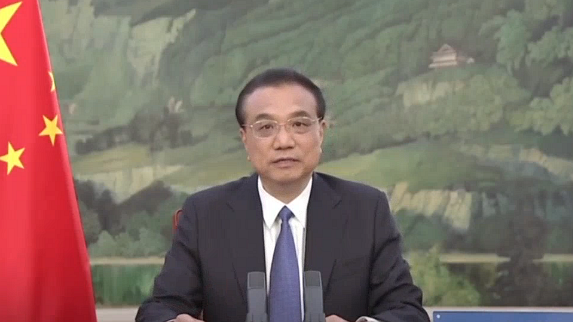Chinese Premier Li Keqiang on Thursday announced that the Chinese government would make a contribution of 20 million U.S. dollars to the funding of Gavi, a UN-backed alliance that helps get vaccines to developing countries, to meet the challenges of COVID-19 between 2021 and 2025.
Li made the remarks while addressing the Global Vaccine Summit 2020 hosted by the UK and aimed at accelerating the development of a vaccine for COVID-19.
China will continue to support the World Health Organization's (WHO) central role in coordinating vaccine research and development, and push forward multicenter clinical trials of vaccines, Li noted, adding that vaccines are a strong shield against the virus.
"We are working around the clock for breakthroughs in vaccines, therapeutics, and testing reagents," the Premier said. "So far, investment from the Chinese government and private sector in these areas has topped four billion yuan (about 562 million U.S. dollars), it is estimated to exceed 10 billion yuan in total."
At the opening of the recent 73rd World Health Assembly, Chinese President Xi Jinping called for building a global community of health for all and put forward China's proposals and initiatives for boosting international cooperation against COVID-19.
"China will continue to do its best to help affected countries, especially developing ones, bolster their COVID-19 responses and socio-economic recover," said Li.
COVID-19 vaccine development in China
China has now approved three COVID-19 vaccine candidates for clinical trials, with the recombinant adenovirus vector-based vaccine (Ad5-nCoV) listed as the world's first vaccine goes into second-phase by the WHO. This special type is able to act as a natural infection and is especially good at teaching the immune system how to fight germs.
Developed by a research team at the Institute of Military Medicine under the Academy of Military Sciences, China's Ad5-nCoV is now a promising candidate, as the method was used by the same team to successfully develop an Ebola vaccine in 2017.








 User Center
User Center My Training Class
My Training Class Feedback
Feedback













Comments
Something to say?
Log in or Sign up for free